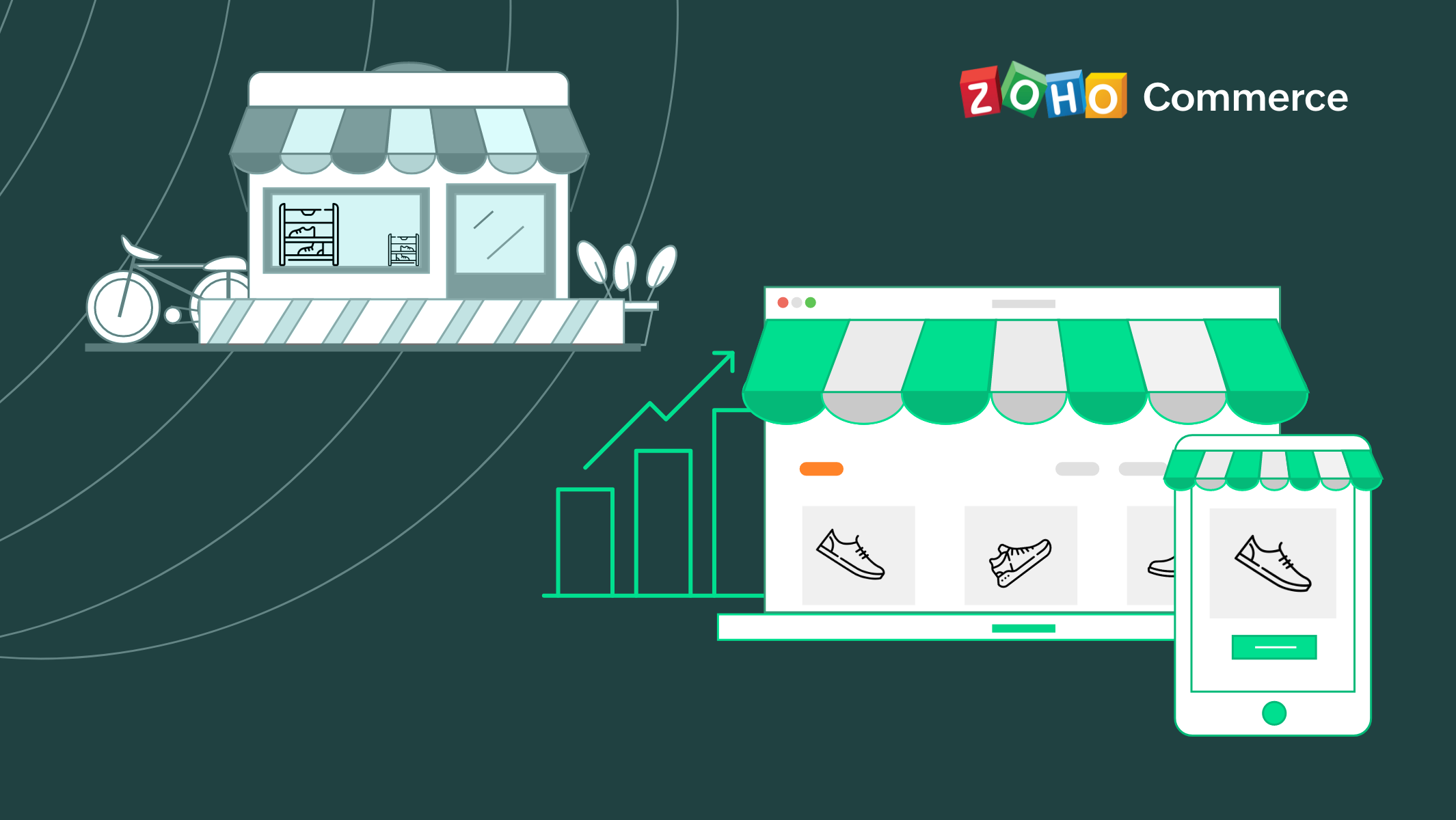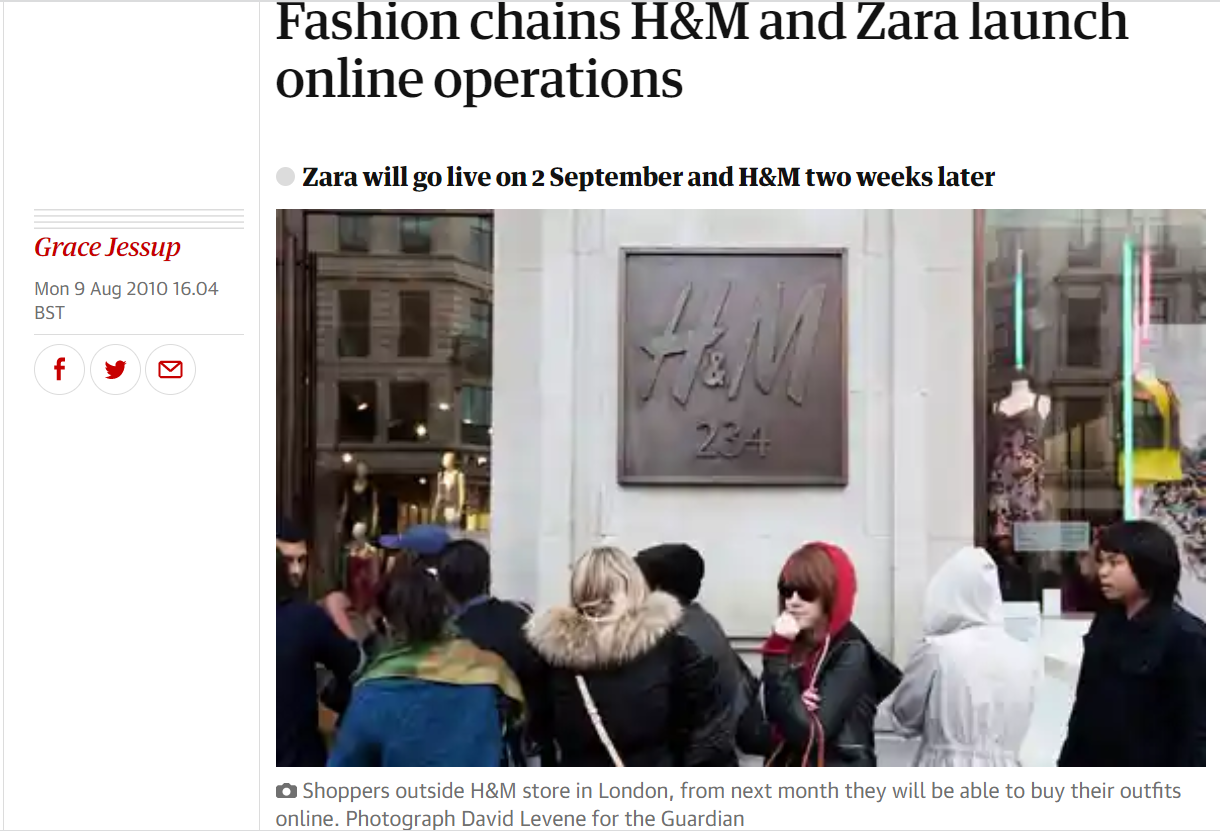- HOME
- Ecommerce business
- Taking your business from offline to online - Secrets to transforming your business into an ecommerce leader
Taking your business from offline to online - Secrets to transforming your business into an ecommerce leader

The very mention of the word ecommerce brings up the image of a thriving online business run from an apartment or small office. However, that's not completely true. Nowadays, ecommerce is an integral part of running any business. An ecommerce platform can be incredibly beneficial for businesses, both online and offline. By having an ecommerce platform, businesses can connect with more customers and sell their products or services more easily.
In addition, an ecommerce platform can provide businesses with valuable insights into their customers’ buying behavior. By understanding their customers better, businesses can make more informed decisions about how to grow their business. Plus, an ecommerce platform can help businesses manage their inventory and orders more efficiently.
In this article, we'll take a look at how a good ecommerce platform can benefit traditional brick and mortar businesses.
Why a good ecommerce platform matters
When you’re running an ecommerce business, the platform you use can make or break your success. A good ecommerce platform will provide you with the tools you need to manage your inventory, take payments, and ship orders seamlessly. Without a good ecommerce platform, you’ll likely find yourself bogged down in the details of managing your online business, which will take away from time you could be spending growing it.
A good ecommerce platform can automate many of the repetitive tasks associated with running an online business, such as order processing, inventory management, and customer service. This can free up your time and also help you save on overhead so you can focus on the main aspect of your business—your product(s).

A credible ecommerce platform can make all the difference for a business. It helps to create a professional-looking website and makes it easy to manage inventory and payments. It provides features that customers will appreciate, such as saving items in a wishlist or creating a registry. All of these factors can come together to create a positive experience for customers, which can lead to repeat business and referrals. In short, a good ecommerce platform is essential for any business that wants to succeed in the long run.
Ecommerce vs. traditional business: A quick comparison
There are several key differences between ecommerce and brick-and-mortar businesses. Perhaps the most obvious difference is that ecommerce businesses are online, while brick-and-mortar businesses are not. This means that ecommerce businesses can reach a global audience of potential customers, while brick-and-mortar businesses are limited to a given location.
Let's take a quick look at the differences between ecommerce and traditional business.
Features | Ecommerce | Offline commerce |
Business tasks | Automated | Manual |
Operational costs | Low | High |
Setup | Easy | Difficult |
Marketing | Easy | Difficult |
Profit ratio | High | Low |
Brand visibility | High | Low |
Availability | 24/7 | Business hours only |
Maintenance | Low cost | High cost |
Ecommerce gives businesses the ability to track data and analytics so they can see what is working and what is not. This information is missing in offline businesses and is valuable in making decisions about marketing and product development. With so many benefits, it’s no wonder ecommerce is becoming increasingly popular among businesses of all sizes.
In the post-pandemic world, the main reason brick-and-mortar stores are struggling is their failure to attract customers. Even if a store has great products, it's likely potential customers will choose to buy from an online retailer due to additional discounts and convenience. Another reason for the decline of offline commerce is the rising cost of rent and other overhead expenses to maintain a physical store.
Types of ecommerce
Ecommerce businesses have come a long way since the early days of online shopping. There are different types and categories of ecommerce platforms and knowing them fully will help you make an informed decision for your business. Today, there are three main types of ecommerce business platforms:

SaaS-based platform
SaaS is a software as a service delivery model. It is software offered by the provider on the web. Customers can access and use the software, typically through a web browser, while the provider manages the infrastructure and security.
Example: Mailchimp, Adobe, Microsoft, etc.
PaaS-based platform
PaaS, or Platform as a Service, is a type of ecommerce business model in which businesses can offer customers a platform to use to create their own products or services.
Example: Microsoft Azure, IBM Cloud, OpenStack, etc.
On-premises platform
An on-premises ecommerce platform is software businesses can use to create an online store. This solution is usually hosted on the company’s own servers, which provides more control over the store and its security.
Example: AWS, Rackspace, Digital Ocean.
Business platforms may include different types of ecommerce categories like:
Business-to-Consumer (B2C)
B2C ecommerce businesses are the most familiar to consumers. These are the online retailers that sell products directly to consumers, such as Amazon and Walmart.
Business-to-Business (B2B)
B2B ecommerce businesses sell products or services to other businesses. An example of a B2B ecommerce business is an online supplier of office furniture.
Consumer-to-Consumer (C2C)
C2C ecommerce businesses allow consumers to sell products or services to each other, such as eBay and Airbnb.
Consumer-to-Business (C2B)
C2B is a type of ecommerce business model where customers or consumers can offer products and services to businesses or organizations like Fiverr or Upwork.
Business-to-Administration (B2A)
B2A is a type of ecommerce model where businesses sell software or applications to an administration like the government.
Consumer-to-Administration (C2A)
C2A covers all electronic transactions between individuals and public administrations like tax filing software, paying for tuition or higher education, or scheduling health appointments online.
Mobile Commerce (M-Commerce)
M-commerce is one of the newest and most exciting trends in ecommerce. In-app purchasing and marketplace apps are good examples of this.
Facebook Commerce (F-Commerce)
F-commerce is an ecommerce model that is based on Facebook, which allows businesses to sell their products and services through the site.
How can an ecommerce platform benefit your offline business?
With just an internet connection, an ecommerce platform gives you the ability to reach a global audience and sell your products to anyone, anywhere in the world. With this, you can tap into new markets to grow your business. An ecommerce platform also allows you to automate some of the selling processes like shipping and billing that free up your time to focus on other aspects of your business. In short, it's almost like giving wings to your existing business to help it discover new opportunities and arenas. This can help you increase your profits.

Having an ecommerce platform for your offline business has plenty of benefits like:
➤ Increased reach - Businesses are no longer restricted to operating within geographical boundaries.
➤ Increased flexibility - Brands can easily change prices and run sales/promotions as needed, allowing them to respond quickly to changes in the market and take advantage of opportunities as they arise.
➤ Greater convenience - Customers can shop according to their convenience, without having to stick strictly to business hours, as is needed in an offline store. This is especially beneficial for businesses that aspire to go global and cater for customers in different time zones.
➤ Improved customer service - With access to customer service tools that allow businesses to track customer satisfaction levels at a closer level and engage with them 24x7, it's more convenient to address issues promptly without human intervention at every level.
➤ Lower costs - Most ecommerce businesses can operate with fewer employees, minimal rent, and lower utility costs, making them tremendously cost effective to establish and function.
➤ Increased sales - Customers can shop from the comfort of their own homes without having to deal with traffic, parking, or long lines at the store. Online businesses are also able to offer a wide variety of products as compared to offline stores. As convenience and choice increases, sales start to shoot up.
➤ More efficient operations - Access and integration with powerful automation and operational tools helps them automate their business processes on a regular basis.
➤ Greater scalability - As the internet provides a level playing field and requires a comparatively smaller investment to get started, it's much easier to scale up on an online platform.
To understand how businesses build on the additional capabilities with a thriving ecommerce store, let's take the example of the global fashion brand Zara, owned by Spanish company Inditex, which changed its game with the O2O (Offline-2-Online) model.
Case in point: How did Zara become the fashion giant it is today?
The O2O business model is when a brand starts out as an offline business and then expands to include an online presence. This type of model is becoming more and more common, as it allows businesses to reach a wider audience.
In 2010, multinational retail clothing chain Zara adopted the O2O business model to launch its first online store in Jordan, becoming one of the first fashion retailers to move into ecommerce.

Back in 2010, the brand wanted to come up with a new strategy to buck the gloom that was plaguing high street fashion in the aftermath of the global slowdown. Even as consumer spending began nosediving, online sales remained upbeat. Although risky at the time, the move paid off handsomely for the brand. The company continued to innovate in ecommerce, launching new features and services that kept it ahead of the competition. Zara's online success became a major boon for the company, helping it become one of the world's leading fashion retailers.
After the successful launch, the company decided to extend its ecommerce presence to five more countries in November of that same year. These included Austria, Ireland, the Netherlands, Belgium, and Luxembourg. Zara Online's expansion into all these new markets not only proved to be a huge success for the brand, but it also heated up the fashion war among retail brands looking to get into online business. The company saw a significant increase in sales and traffic to its website from these countries, and today Zara is asserting its fashion dominance worldwide.

This is a testament to Zara's strong ecommerce platform and its ability to appeal to customers in different markets. Today, the online store is a key part of Zara's business, accounting for a significant portion of its sales, with a brand value of a staggering $13 billion.
Ecommerce platform provider checklist: How to choose the right one for your business
Choosing an ecommerce platform for your business can be an exhausting process. With so many options, it can be overwhelming to figure out which one is right for you. But don’t worry, we’re here to help! Whether you're just starting an ecommerce business or you've been in business for a while, choosing the right platform is crucial for your success. Here are 10 questions to consider as you set out to choose the right platform for your organization:
1. What type of products are you selling? If you have a lot of products, you’ll need a platform that can handle the volume. If you have digital products, you’ll need a platform that can sell those as well.
2. How much control do you want over the look and feel of your store? Some platforms give you more control than others. If you want complete control, you might want to choose a platform that lets you customize the HTML/CSS. But if you want an easy-to-build store with simple drop-and-drag features and preset templates, a SaaS-based platform will work better.
3. How important is ease of use? You want a platform that is easy to use and set up. Otherwise, you’ll be spending more time trying to figure out the system than actually selling your products.
4. What are your technical requirements? Consider how much technical support you'll need to set up and run the store.
5. What is your budget? How much are you willing to spend on an ecommerce platform? There are many great options available at different price points, so it's important to know how much you're willing to invest upfront.

6. Do you need any special features like loyalty programs or gift cards?
7. Does your inventory require special management? Are you selling perishable or fragile items?
8. What customer support options will you need through the course of running your business? Good ecommerce platforms provide 24/7 support to help you remove any kind of roadblocks.
9. Can the platform scale with your business? If you plan on adding more products or expanding to new markets, make sure the platform can accommodate that growth.
10. What integrations are you looking at having? Your business will need different types of shipping, carrier, payment, marketing, and other integrations to run smoothly. Choosing a brand that provides everything under one roof would be a wise decision instead of relying on third-party apps or subscriptions.
Online business skills you'll need to build
Having strong online business skills can help you stay ahead of the competition, attract more customers, and boost your bottom line. If you're looking to start or grow an online business, it's vital to brush up on your skills so you can be successful. Online business skills are now just as important, if not more important, than traditional business skills.
Here's why online business skills are so important:
➤ First, more and more consumers are shopping online. This means that if you want to reach your target market, you need to build a strong online presence.
➤ Second, there is a lot of competition online. To be successful, you need to know how to stand out from the crowd and attract attention to your business.

➤ Finally, conducting business online requires a different skill set than conducting business in person. You need to be able to communicate effectively and sell your product or service through your website or other online channels.
What technical skills does ecommerce require?
Running an ecommerce business takes a lot of work and dedication. But if you have the right technical skills, it can be a flourishing venture. Here are some key technical skills that you need to run an ecommerce business:
Website design
A well-designed website is essential for any ecommerce business. It needs to be user-friendly and easy to navigate. It should also have all the necessary information about your products and services.
SEO
Search engine optimization is important for any website, but it’s especially important for ecommerce websites. You need to make sure your website is ranking high in search results so potential customers can find you.
Social media management
Social media is a great way to connect with potential and current customers. You need to be active on social media, posting interesting content and engaging with your followers.

Email marketing
Email marketing is one of the most important technical skills for ecommerce businesses. By building a list of subscribers and sending out regular newsletters, you can stay top of mind with your customers and continue to drive sales.
What business skills does ecommerce require?
Sales, marketing, and customer service are key business skills for any ecommerce entrepreneur. By honing these, you can set your business up for success.
Sales
Sales skills are crucial for any business, but especially for an ecommerce business. You need to be able to sell your products or services effectively online. This means knowing how to market them, how to set prices, and how to close deals.
Marketing
Marketing is another important skill for ecommerce businesses. You need to be able to generate traffic to your website and convert that traffic into sales. This means understanding SEO, social media marketing, email marketing, and other digital marketing strategies. Writing custom page titles and meta descriptions will further help to rank your page better.
Customer service
Customer service is also essential for ecommerce businesses. You need to be able to provide excellent customer service in order to build a loyal customer base.

Analytics
Analytical skills are essential for any online business. Data analysis helps you track and understand your customers, while tracking KPIs helps you measure and improve your performance.
Data analysis is all about understanding your customers. What do they like? What do they dislike? What are their buying habits? By understanding your customers, you can make better decisions about how to grow your business.
Tracking KPIs is essential for measuring and improving your performance. KPIs help you track progress towards your goals and identify areas where you need to make changes. Without tracking KPIs, it’s difficult to know whether you’re making progress.
Writing
In an ecommerce business, creating compelling content is essential to attract and engage customers. By providing interesting and informative content on your website or blog, you can build trust with potential customers and establish yourself as a credible source of information. Additionally, compelling content can help to boost your search engine rankings, driving even more traffic to your site.
Conclusion
With the online world becoming more and more central to the way people shop, businesses that don't have an ecommerce platform are at a serious disadvantage. If you're running an offline business, now is the time to invest in ecommerce. It',s a powerful tool that can benefit any business, offline or online. By increasing visibility, reach, and sales; creating a 24/7 storefront; and reducing costs, ecommerce provides opportunities for businesses of all sizes to grow and succeed like never before. For offline businesses, ecommerce can be the key to staying relevant and competitive in today’s market. If you're not using ecommerce to sell your products or services, you're missing out on a huge opportunity. Now is the time to get started!
If you're looking for an ecommerce platform to transition your business from offline to online, Zoho Commerce is the complete package where you can design beautiful online stores in minutes, manage inventory with precision, integrate payment gateways for secure transactions, create shipping labels with a single click, analyze customer data, and customize marketing campaigns–all from one unified interface. Plus, all of this comes without having to hire any extra IT staff or invest in costly hardware or software.
What's more, you'll never be alone as you grow your business. You get access to a helpful support team who are on hand 24/7 to answer any questions or queries that pop up along the way.
